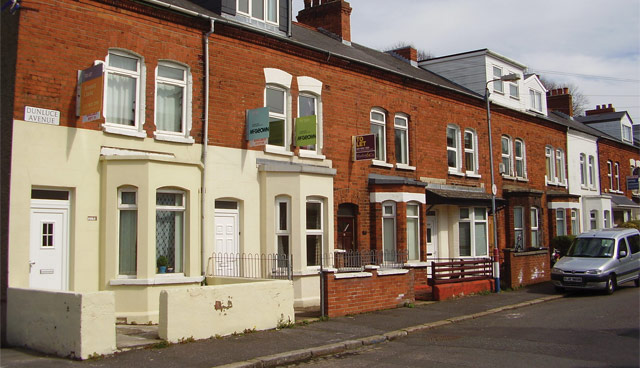New licensing scheme to regulate ownerships of HMOs

The passage of 2016’s Houses in Multiple Occupation Act means that landlords of houses with multiple occupation (HMOs) in Northern Ireland will now have to obtain a valid license for every HMO they own and operate.
The Houses in Multiple Occupation Act took effect on 1 April and it now requires all HMO landlords to obtain a license and comply with new regulations. Licenses can be obtained from local authorities, who have taken over the management of HMOs from the Northern Ireland Housing Executive (NIHE).
Belfast City Council has been entrusted with the overall delivery of the scheme and it will serve as the base of a new Northern Ireland HMO Unit. All HMO landlords who had previously been registered with the NIHE will have their licenses transferred to the relevant local authority, with their license lasting five years from the date it was originally granted. It will be the responsibility of the HMO Unit to notify landlords when their licenses are due for renewal.
Under the Act, a house in multiple occupation is defined as: “a building or part of a building that is classed as living accommodation occupied by three or more persons who are all not members of the same family or of one or other of two families; in specific types of accommodation; with use of prescriptive basic amenities”.
The legislative move will have its greatest effect in Belfast, where 4,360 of Northern Ireland’s 6,600 HMOs are situated. The move will create renewed pressure on landlords of student housing to meet required standards; the area with the highest concentration of HMOs is the Holylands in Belfast’s University Quarter.
Landlords can apply for licenses online, by post, or in person at their local authority. They will be required to display that theirs is a safe and good quality property, with facilities suitable for the number of tenants therein. Requirements for the property include up-to-date safety and maintenance certificates, a carbon monoxide alarm and an Energy Efficiency Certificate with a minimum grade of E.
License fees are dependent upon the number of tenants, with a base charge of £37 per person, although variations in overall price will occur per property. Prospective landlords will also be subject to fit and proper person testing by their local authority to determine if they are a suitable candidate for the operation of an HMO.
Grounds for refusal outside of failing the fit and proper testing include: the property breaching planning control should it operate as an HMO; the granting of the license contributing to an over-provision of HMOs in the area; management arrangements of the HMO being unsatisfactory; and the property not being fit for occupation as an HMO.
Following the completion of an application, the HMO Unit will inspect the property to determine suitability and to specify if the applicant is fit and proper person. Then, a report will then be given to the local authority, which will decide whether to fully grant a licence, grant a license with conditions, or refuse the application.
The Act has also made it a criminal offence to operate a licensable HMO without an appropriate license. Those found to be in violation will be liable to pay a £5,000 fine for a fixed penalty notice and a £20,000 fine on the occasion of a summary conviction.





